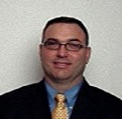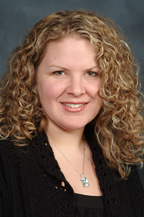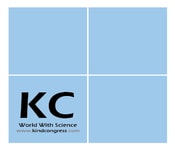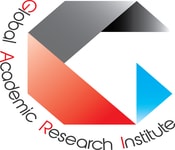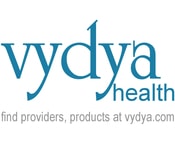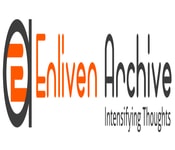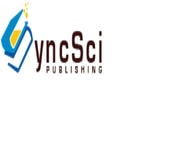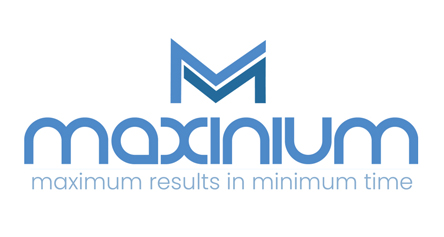Theme: Exploring New Dimensions in Neonatology and Research Advancements
Euro Neonatology 2018
Neonatology Conference cordially invite Neonatologists from all over the globe to be present at “28th World Congress on Neonatology & Diagnosis“ which is going to be held during December 06-07, 2018 at Amsterdam, Netherlands.
Neonatology Conference 2018, based on the theme “Exploring new dimensions in neonatology and research advancements" is going to be an extraordinary event which will focus on the recent medical as well as technological developments in the fields of neonatology and pediatrics.
Neonatology Conference 2018 send our warm invitations to all the interested professors, medical professionals, delegates and students to attend the conference. We request neonatologists and pediatricians from all over the world to enlighten the audience with the eminent researches and advancements going on in the fields of neonatology. The YRF encourages participation from the young research scholars in the form of oral and poster presentation.
We are anticipating a great successful event studded with interactive keynotes, oral and poster presentations and B2B discussions with the perfect cooperation of the delegates, keynote speakers, neonatologists, industrial executives from Pharma and Healthcare.
Why to attend?
Euro Neonatology 2018 is an international platform where the neonatologists and pediatricians from all over the world can share their knowledge and research about their respective fields with the delegates. The main aim of the conference is to create awareness about the various neonatal ailments and to suggest proper treatments. The conference theme is concentrated on the medical development in the various fields of neonatal researches such as Neonatal Nursing, Neonatal Neurology, Neonatal Cardiology, Neonatal Endocrinology, Neonatal Gastroenterology, Neonatal Psychology, Neonatal Pulmonology, Neonatal Otorhinolaryngology & Rheumatology, Neonatal Oncology and Hematology etc.
We look forward to an exciting and informative conference brought together by the various forms of presentation and active participation from different parts of the world.
Targeted audience:
- Pediatricians’
- Infectious diseases pediatricians
- Researchers
- Nurses
- Associations and Societies
- Pediatric Faculty
- Medical Colleges
- Pediatric Physicians
- Training Institutes
- Software developing companies
- Business Entrepreneurs
- Manufacturing Medical Devices Companies
- Residents
- Case Managers
- Young researchers
- Physician Assistants
- Hospital Administrators
- Hospital General Counsel
Track 1: Neonatology
Neonatology is a speciality achieved under Pediatrics which primarily deals with intense medical care provided to newborn infants, especially if they are ill or premature. It is usually practiced widely in Neonatal Intensive Care Units (NICU) and hospitals. The patients of neonatologists are newborns who suffer from prematurity, low birth weight, congenital malformations, pulmonary, cardiac disorders etc.
Track 2: Maternal & Child Medical Care
Maternal medical care and treatment is of primary importance when it comes to conceiving and giving birth to a healthy child. As a result women looking forward to conceiving must take proper care of their own health and must visit a gynecologist from time to time. The term infertility is applied to a woman, if she is unable to conceive within roughly 12 months.There are various modern medical and technological advancements which can cure infertility and other pregnancy related issues. Similarly proper medical care and nursing of newborn infants is of utmost importance, especially at the initial stages. Newborns suffering from severe illnesses are treated at Neonatal Intensive Care Units (NICU).
Track 3: Neural and Cardiac Diseases in Infants
There are various neurological and cardiovascular diseases occurring in infants. These diseases result due to several reasons. Hydrocephalus is the condition where fluid accumulates inside the infant’s brain. Periventricular Leukomalacia is a severe condition where the white matter of the brain gets damaged or softened due to premature/difficult birth or infection inside the womb.The other common neural diseases include asphyxia, seizures, hemorrhage, cerebrovascular malformations, nerve tube defects etc.
Some of the major fetal cardiac diseases include irregular heart rhythms, prenatal heart failure, congenital diseases like hypo plastic left heart syndromes, septal defects etc.
Track 4: Pediatric Endocrinology and Gastroenterology
Neonatal endocrinology deals with curing defects in endocrine glands. Such disorders include damage in pituitary glands, thyroid glands, calcium and glucose homeostasis disorder, disorder of sexual differentiation etc. Endocrinology diseases are unique to perinatal period.
Gastroenterological diseases mainly occur due to digestive problems in infants. The major gastroenterological disorders include vomiting, infant regurgitation, abdominal pain, infant rumination syndrome, ulcer-like dyspepsia, irritable bowel syndrome, functional diarrhea etc.
Track 5: Psychology in Newborns
Neonatal psychology deals with infant mental health which includes the mental health of babies of ages ranging between newborn to 3 years of age. It strongly depends upon the relationship between the parent and the child. Infants usually feel more comfortable in presence of their parents rather than any strangers. They want to be close to their parents and become excited on meeting their parents if they are separated for a long time. If a baby does not feel attached to his/her parents, then it might be a serious concern and the parents need to put more efforts in showing affection towards their child.
Track 6: Pulmonology Diseases and Diagnosis
Pulmonary disorders in infants are very common because just after delivery the newborn faces difficulties in respiring in the external environment. However in cases of severe lung and tracheal disorder the patients must be shifted to intensive care units immediately. The common pulmonary disorders are respiratory distress syndrome, chronic lung disease, transient tachypnea, meconium aspiration syndrome, persistent hypertension etc.
Track 7: Neonatal Otorhinolaryngology & Rheumatology
Neonatal otorhinolaryngology deals with the diseases of ear, nose, throat, head and neck in infants. The most common diseases coming under this category are adenoiditis, adenoid hypertrophy, breathing difficulties, hair loss, thyroid, chronic ear problems etc.
Rheumatology in infants includes muscle and joint weakness, juvenile lupus, skin rashes on eyelids and knuckles etc. Rheumatoid arteritis is an immune system problem.
Track 8: Pediatric Oncology
Cancer in infants occurs due to histological diversities. Owing to the different natures of tumours in infants, the diagnosis and treatment varies from person to person. The most common neonatal cancers are teratoma, neuroblastoma, brain tumour, leukemia, renal tumours etc. On the basis of routine ultrasound, prenatal detection is common nowadays.
Track 9: Dental Problems in Infants
Pediatric dentistry deals with maintenance of oral health and hygiene in children from infants to adolescence. Routine checkups from dentists are very important at an younger age for maintaining proper dental condition. The general dental issues observed in children include tooth ache, cavities etc. Effective home remedies like brushing, flossing etc. can help in reducing dental issues.
Track 10: Neonatal Ophthalmology
Pediatric ophthalmology deals with curing of eye diseases in children. The common eye disorders observed are amblyopia, conjunctivitis, blocked tear ducts, pediatric glaucoma, pediatric cataracts, orbital tumours, strabismus etc.
Track 11: Pediatric Urology and Nephrology
Neonatal urology includes genitourinary disorders in infants. These disorders can be detected before birth on the basis of maternal sonography. The most common diseases detected are abdominal masses, urosepsis, urinary retention, scrotal masses, abnormal external genitilia, posterior urethral valves, spina bifida, triad syndrome etc.
Nephrology in infants includes the study of the structure of renal system. The common renal disorders in infants include abnormal kidney morphogenesis, electrolyte imbalance, tubular dysfunctions, cystic kidney diseases, blood pressure and hypertension, renal failure etc.
Track 12: Neonatal Jaundice
Jaundice in infants occurs due to high bilirubin levels. The white part of the eyes undergoes an yellowish discolouration. In severe cases complications may arise such as seizures, cerebral palsy, kernicterus etc. it mainly occurs due to liver diseases, break down of RBC’s, hypothyroidism etc.
Track 13: Autism/ ADHD
Autism is a disorder observed in infants and children where they face challenges with social skills, speeches, non-verbal communication, repetitive behaviors etc. This disorder is usually detected in babies of ages 2 or 3 years.
Attention deficit hyperactivity disorder (ADHD) is detected in children before 12 years of age. It is considered as a mental disorder where a child faces difficulty in paying attention or they tend to show controlling behaviors. It can be reduced by counseling and medications.
Track 14: Allergy & Infectious Diseases in Newborns
Respiratory allergies and immunologic diseases are observed in neonates, which require proper treatments. The most common chronic allergies in new born babies include asthma, red eyes, eczema, itchiness, runny nose, sinusitis etc. The causative agents include influenza virus, adenovirus, respiratory syncytial virus etc.
Infections may occur in infants due to trans-placental transfer, in birth canal during delivery etc. Some neonatal infections may be observed right after delivery while others are detected after few weeks or one month. Such diseases include HIV, hepatitis B, malaria etc.
Track 15: Infant Surgery and Radiology
Infants who are born ill are often administered to surgical treatments, especially for severe diseases like pulmonary or cardiac disorders. Neonatal surgeries are completed within the first 28 days of birth.
In order to monitor critically ill infants a radiography of the patients are obtained which gives a view of the neonate lungs and to evaluate positions of catheters and tubes.
Track 16: Pediatric Nutrition and Breast Feeding
Proper nutrition at the early stage of life is of immense importance for growth and development of the infant. The basic mode of nutrition for newborns is breast milk.
Breast feeding is the process of feeding milk to infants from a woman’s breast. It is recommended by health professionals that breast-feeding begins within the first hour of the baby’s life and may continue till the baby wants it. Breast-feeding decreases the risks of various diseases like respiratory tract infection, diarrhea, asthma, food allergies, type 1 diabetes, leukemia etc. It also helps lower chances of obesities in childhood.
Track 17: Preserving Baby Stem Cells
Stem cells are considered as the building blocks of our bodies. A single stem cell is capable of developing into several specialized cells and organs like blood cells, brain etc. preservation of stem cells is of immense medical importance nowadays because with the help of stem cells several diseases can be cured such as thalassemia, leukemia, neuroblastoma etc. the dead and differentiated cells can be replaced by stem cells. Again injured cells can be repaired using stem cell transplant. Hence preservation of stem cells from the babies may prove to be beneficial in curing several ailments. The umbilical cord lining of the baby is collected, stored and preserved for such purposes.
Track 18: ADRIC: Adverse Drug Reactions in Children
The toxic effect of medication in children is a severe issue nowadays. Drugs having severe side effects must be monitored properly and should pass the safe pharmaceutical level. Adverse drug experiences must be routinely examined by the hospitals. ADRs over a prolonged period of time may result in making the patient disabled or can even lead to death. Hence before administering drugs to children, the drug must be monitored crucially via routine clinical trials.
Importance & scope:
WHO has estimated that, in 2015, around 15 millions of neonates are born annually, among whom approximately one million die owing to preterm birth complications. There is a significant global surge in the number of fetal and neonatal care equipment over the years in order to decrease the complications of prematurely born babies. Among the various factors resulting in the birth of premature babies, the most important ones include delayed maternity, induced fertility, lack of proper parental care etc. in the upcoming years the care equipment should see a positive growth with the help of rapid technological advancements in collaboration with government support.
Fetal and neonatal care devices are well designed to examine and detect the disorders in the infants. It is expected that the global care equipment market will see a rise up to 12.7 billion USD within 2025. The factors attributing these numbers are the increasing birthrates coupled with prematurely born babies. Furthermore various neonatal infectious diseases acquired from the hospitals itself are notable factors contributing in global market growth.
Industries associated with neonatology worldwide:
- Actelion
- Astellas
- AstraZeneca
- Boehringer Ingelheim
- Bristol-Myers Squibb
- Gilead Sciences
- Johnson & Johnson
- MEDNAX, Inc
- Merck & Co
- Otsuka
- Roche
- Sanofi
- Sanofi
- Takeda
- United Therapeutics
Major neonatal hospitals worldwide:
- All Children’s Hospital of John Hopkins Medicine
- Argos General Hospital
- Boston Children's Hospital
- Children’s Hospital of Philadelphia
- CHU Brugmann – Brussels
- Duke Children’s Hospital and Health Center
- Gentofte Hospital in Gentofte
- Hospital de Jove
- Hospital of Puerto Real
- Hospital Paris
- Hospital Universitari Arnau de Vilanova
- Hospital Universitario Virgen del Rocío
- Hospital Virgen De La Victoria
- Mattel Children’s Hospital
- Monroe Carell Jr. Children’s Hospital
- Nationwide Children's Hospital
- Queen Fabiola Children's University Hospital – Brussels
- St Jude Children’s Research Hospital
- St Louis Children’s Hospital
- Texas Children’s Hospital
Universities associated with neonatology worldwide:
- University of Pennsylvania
- Vanderbilt University
- Mount Royal University
- University of Maryland School of Nursing
- University of Indianapolis
- University of Salford
- University of Virginia
- University of Pittsburgh
- University of Pennsylvania
- Columbia University
- Duke University
- University of Texas
- Brown University
- University of Chicago
Neonatal care equipment:
- MRI
- Pulse Oximeters
- Monitors
- Ultrasound Devices
- Infant Warmers
- Incubators
- Phototherapy equipments
- Neonatal ventilators
- Continuous positive airway pressure devices
- Resuscitators
- Oxygen analysers and monitors
Global neonatal equipment market:
- Becton
- Dickinson and Company
- GE Healthcare
- Koninklijke Philips
- The Dragger Group
- Medtronic
- N.V
Why Netherlands?
In accordance to a Europe-wide research report on infant mortality rates, Netherlands was observed to hold the sixth highest position in the entire continent. However on the basis of a five year long thorough research project it was seen that the death rates gradually decreased by 14 percent. A survey in 2004 reported that among 1000 infants 10.5 died. But within 2010 the number reduced to 9. Hence it was inferred that Netherlands had undergone advancements in the fields of neonatal research.
However the digits are still considered very high. Thus Netherlands is in need of rapid neonatal developments. A controversy surrounds the country regarding the Dutch preference for home birth which is considered far more risky than hospital births. The rate of home births is also decreasing gradually.
Hospitals associated with neonatology in Amsterdam:
- Emma Children (AMC)
- VUmc
- BovenIJ ziekenhuis
- Academic Medical Centre
- OLVG, location West
Conference Highlights
- Neonatology
- Maternal & Child Medical Care
- Neural and Cardiac Diseases in Infants
- Pediatric Endocrinology and Gastroenterology
- Psychology in Newborns
- Pulmonology Diseases and Diagnosis
- Neonatal Otorhinolaryngology & Rheumatology
- Pediatric Oncology
- Dental Problems in Infants
- Pediatric Urology and Nephrology
- Neonatal Jaundice
- Autism/ ADHD
- Allergy & Infectious Diseases in Newborns
- Infant Surgery and Radiology
- Pediatric Nutrition and Breast Feeding
- Preserving Baby Stem Cells
- ADRIC: Adverse Drug Reactions in Children
- Neonatal Ophthalmology
To share your views and research, please click here to register for the Conference.
To Collaborate Scientific Professionals around the World
| Conference Date | December 06-07 2018 | ||
| Sponsors & Exhibitors |
|
||
| Speaker Opportunity Closed | Day 1 | ||
| Poster Opportunity Closed | Click Here to View | ||
Useful Links
Special Issues
All accepted abstracts will be published in respective Our International Journals.
Abstracts will be provided with Digital Object Identifier by






























